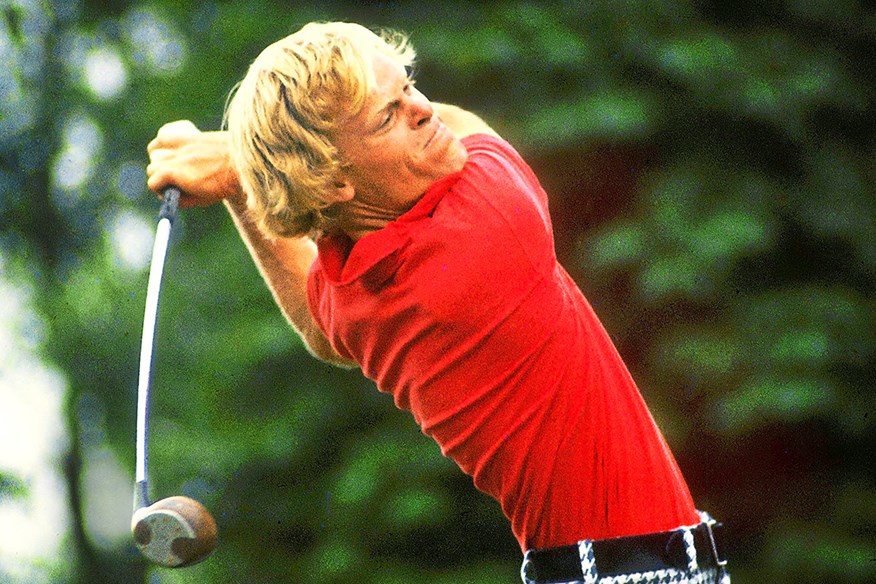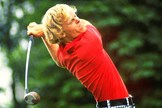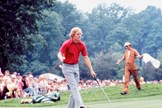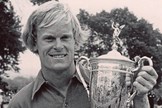Was this the best final round in major championship history?
Last updated:
Johnny Miller produced the greatest final round in Major championship history to win the 1973 US Open at Oakmont. Michael Catling relives his incredible feat – and explains why it could have been even better…
The leaderboard after the third round of the 1973 US Open read like a who’s who of golfing greats. Hometown hero Arnold Palmer was tied for the lead at three under par. Tom Weiskopf sat a shot further back in fifth. Reigning Open champion Lee Trevino was tied sixth, with Gary Player and defending champion Jack Nicklaus rounding out the top 10.
Those present on that final day in Pennsylvania felt like something special was brewing, but the thought of anyone from the chasing pack shooting a record-breaking 63 on Sunday never seemed feasible at a course like Oakmont. Least of all, a player sitting in a four-way tie for 13th place.
Johnny Miller made it look easy, becoming the first man in Major Championship history to shoot a 63 to win the US Open by a stroke from John Schlee. That number has been matched 41 times by 38 different male golfers since then. Four have so far gone lower, but none of them under the pressure of a final round and with a Major on the line.
Miller stands alone as the only man who has shot a 63 and walked away as the champion that same day. It only adds to his achievement that he did so on one of the hardest courses in America, trying to overturn a six-shot deficit with heavyweights Jack Nicklaus, Arnold Palmer, and Gary Player ahead of him.
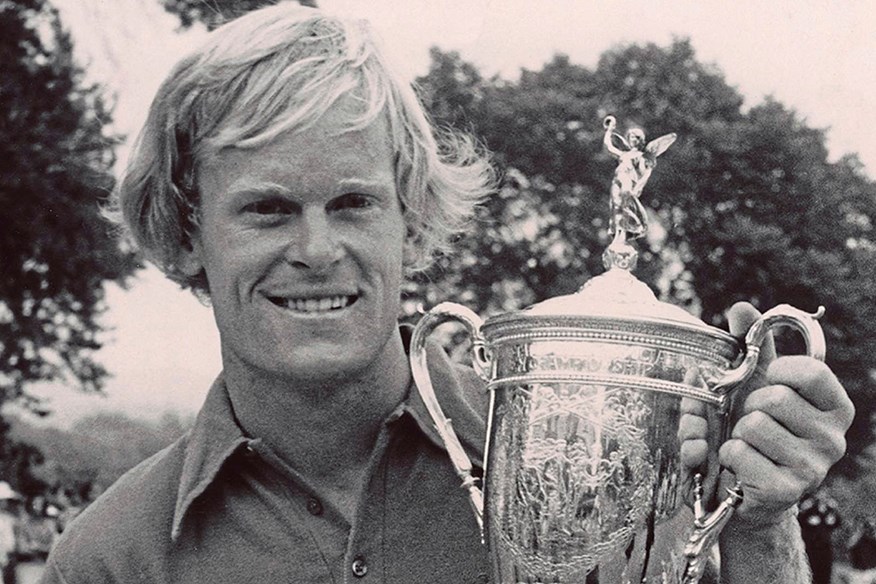
“It wasn’t like I had to catch Duffy Waldorf,” Miller later reflected, “everybody and their dog was ahead of me. I felt like I had no chance.”
The day before, having forgotten his yardage book, he shot what he thought was a tournament-wrecking five-over 76. He took his frustrations out on the range that night, which is when he heard a voice telling him to alter his stance. “I was trying to figure out some little thing, and a pretty clear voice, it wasn’t audible, but I could hear it in my head, and it said, ‘Open your stance way up’.”
MAN ON FIRE
It was a strange moment in a week that had been decidedly odd from the start. After his first practice round on Monday, a clairvoyant approached him and told him that he was going to win. She said the same thing the next day, and the day after that as well. It was only after seemingly shooting himself out of the tournament on Saturday that she went quiet, though he did find an anonymous letter, pinned to his locker on Sunday, telling him that he was going to win.
Before he left for the course on Sunday, Miller told his wife, Linda, to make sure their bags were packed so they could make a quick getaway after his round had finished.
He teed off nearly an hour before the final group and then proceeded to birdie the first four holes to move back into the red figures. “I’m thinking, ‘Jeez, I’m only two or three back, and leaders tend to choke on Sunday, so I’m right in this!’ I knew I had a great shot, and that made the hairs on my neck stand up, but I got a little chokey. I started leaving putts short, and after a perfect 4-wood on the short 8th, I three-putted from 16 feet.”
It was that blemish that tipped the balance in his favour. In that single moment, Miller went from nervous to annoyed and the round from ordinary to extraordinary. With his new set-up and shot shape, he picked up shots at five of the next seven holes, his birdie on 15 moving him into the lead for the first time.
“My feeling was of total confidence. I could place the ball wherever I wanted, like I was in a dream,” he recalled. “I hit every green in regulation, missed one fairway, and my average iron was three feet offline from where I was aiming. I only played away from the flag twice all day. The rest of the time I was flag-hunting.”
After Arnold Palmer missed a birdie chance on 11, he looked up at the leaderboard on the 12th tee to see the name Miller at the top. “Where the f*ck did he come from?” asked The King, his language somewhat less than regal. “Arnold thought he was leading,” Miller recalls. “But he was not leading anymore. He was one behind me after thinking he had the championship in his back pocket.”

Clearly rattled, Palmer bogeyed the next three holes while Miller parred in to set a new Major Championship scoring record for 18 holes. Victory was eventually confirmed more than an hour later when Schlee’s chip came up a foot short on 18.
“When I finished on 18, something told me I had won,” admits Miller. “I never really worried about whether those guys were going to catch me. I could feel that I had won the US Open.”
to win this and turn up for his Royal Portrush rerun off the back of a month-long hangover. RM
5. Xander Schauffele
THE GREATEST
Though some contend that Miller’s eight-under 63 was not played under the most challenging conditions, only four of the other 65 competitors in the field broke par that day. His score was more than 10 shots better than the field average. Ten of his approach shots finished within 20 feet of the hole, with five of them ending up 10 feet or closer.
“It was definitely no fluke,” said Miller Barber, his playing partner during the round. “It was just an excellent round of golf. Everything he hit was right at the flag. He lipped out a few putts, too (on 17 and 18). It very easily could have been a 60.”
Miller is inclined to agree. “What they don’t realise is that I only had 29 putts that round. That’s probably as historical as any part of the round. I mean, you just don’t shoot 63 at Oakmont with 29 putts. I hit the 9th green in two and every other green in regulation, and I never had a downhill putt in 18 holes.
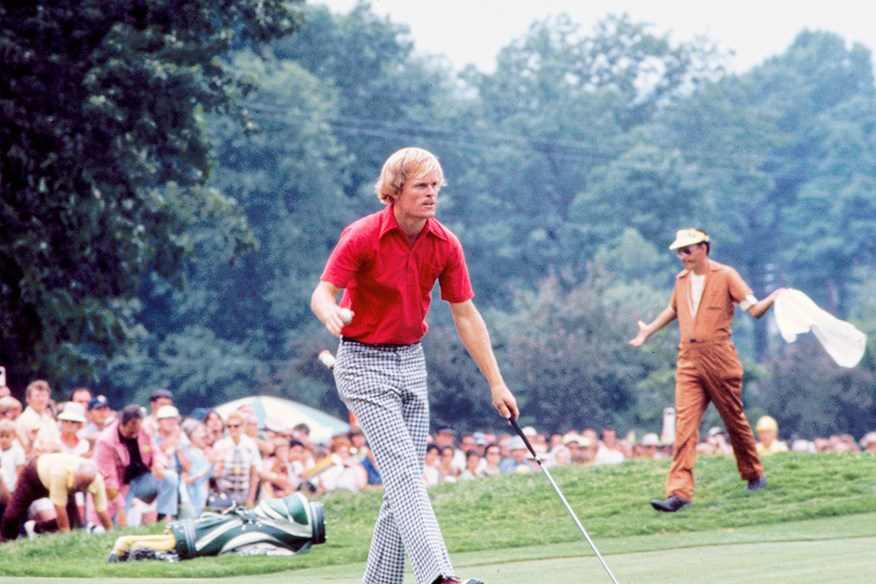
“The only putt with any downslope in it was 16; I hit it left of the hole on purpose when the pin was way right. So it was sort of like a round where you were sleeping at night, and you were able to place the ball where you wanted in your dreams. I just so happened to do it during the daytime, for real, in the final round.”
Even now, people will still come up to him and ask, “How the heck did you shoot 63?” He often replies by telling them that it was the most routine 63 you could ever imagine. He’s yet to see a round that was better in a Major Championship.
“It wasn’t like I shot 63 by holing a bunker shot or chipping it in from off the green or by making a 60-footer or even a 40-footer or even a 30-footer. It was just a great round of golf. To do it at Oakmont on Sunday, I always heard Oakmont was the hardest course in America, so to come back from so far back and win it the way I did was… I guess you’d call it memorable.
“It was voted the greatest round of golf when they (the USGA) did the 100-year celebration of golf, and people still argue whether that was the greatest round ever. But I shot 63 on the final day and it was enough to win the US Open. There will be guys who will go out and shoot 61 or 62, but can they do it on Sunday to win a Major? That’s what makes the round what it is.”
